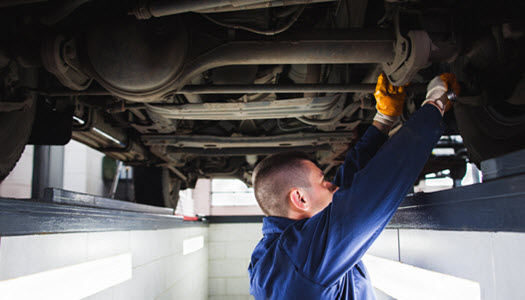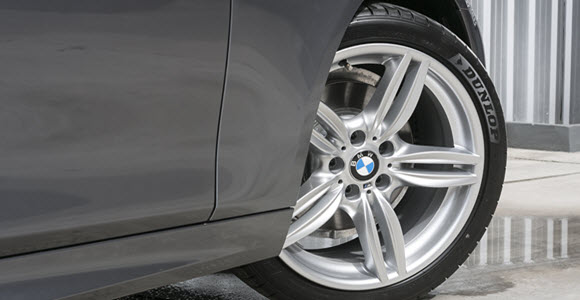How You Can Maintain the Brake System in BMW
Posted on | 27 Dec 2017 By Anita Gaal
BMWs are quality vehicles that offer drivers security and stability; however, the maintained quality of a BMW is highly dependent upon how well we take care of them. Routine maintenance is critical in order to extend the life of your vehicle, but it is also important for safety reasons. For instance, your BMW’s brakes won’t last forever, and will certainly need to be replaced or serviced every now and then. Of course, the rate at which your brakes wear out is also heavily impacted by the overall quality of parts you use to maintain them. Furthermore, driving habits can greatly affect the condition of your brakes—and believe us, we know how easy it is to drive like a race car driver when behind the wheel of a BMW. Here are some tips on how you can best maintain the brake system in your BMW.
Be Good to Your Brakes
Treating your BMW’s brakes well falls under a wide range of categories of care. What we mean by “be good to your brakes” is that it’s especially important to become aware of your driving habits. Driving fast in a BMW seems to come naturally; however, when you drive fast you often have to brake fast—especially if you live in a populated city with many traffic lights. Refrain from standing on the gas pedal until you’re out of the danger zones in which you may have to brake quickly. Disregarding your driving habits can erode your brakes a lot quicker than under normal conditions.
Replace Brake Pads
There are several parts of your BMW’s brake system that may need service or repair if you don’t take good care of your brake pads. Unfortunately, brake pads do wear out eventually, and its important to replace them with good quality brake pads in order to reduce the amount of time between replacements. Be sure to check with your BMW automotive specialist on what the best type of brake pads are for your particular vehicle—choosing the right brake pads can save you expensive trips to the mechanic.
Keep Brake Fluid Full and Clean
BMWs have advanced systems that can tell you when problems are arising, but it’s best to stay one step ahead at all times to avoid costly visits to the automotive shop. Be proactive about your brake fluid as often as possible. Checking your brake fluid’s level and clarity can preemptively stop internal corrosion and/or brake failure. In other words, your brake fluid is essential to the overall health of your brakes, but it’s also important in order to ensure your safety and that of your passengers.
Remain Aware of Symptoms and Troubling Noises
Once there are noticeable symptoms associated with deterioration or failure of your BMW’s brake system, it has gone past the point of preventive care and turned into a damage control situation. Screeching or grinding sounds are concerning when it comes to your brake health; it typically means that repair work is in the near future for your BMW. Staying on top of routine inspections is the best way to prevent brake issues. Brake inspections are easiest to perform when the tires on your vehicle are off—so, you might want to ask that your brakes are inspected every time you have a tire rotation. However, you can check the brake fluid year-round, as this is one important way to prevent damage and troubling symptoms from occurring. Consult with your BMW automotive specialist on how to best care for your brakes in such a way that will be convenient for you.
How We Can Help
Here at Euro Automotive, we specialize in luxury European repair and maintenance services for BMW owners in the areas of Dallas, Garland, Arlington, and Fort Worth, Texas. Our certified and highly skilled technicians focus on preventive care and maintenance in order to save our clients money on costly repairs, whereas many other shops and dealerships tend to ignore preventive care all together and make their money off of the more expensive repair work. We believe that fundamental automotive knowledge can help our clients best care for their vehicles and save money in the process, so it is our mission to help our clients understand the basics. If your BMW is in need of brake service or repair, or you have any other automotive concerns, contact us directly—we look forward to helping your BMW get back to its old self again.
Featured image credit goes to: kurmyshov.




















